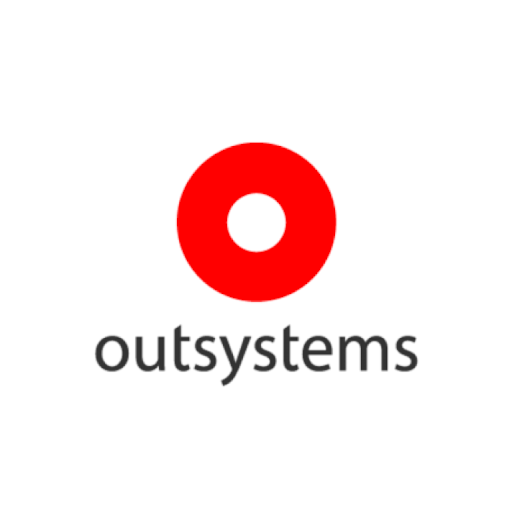Covid-19 drives the great increase in demand for low-code development platforms. They are effective tools to help businesses to develop new applications rapidly because of the pandemic and lockdowns have led to remote work, work from home, and increased online activity. The companies can get great results from applications built with low-code development platforms. Also, enterprise low-code has become boomingly popular over the past year as more businesses search for ways to become more competitive without spending an excessive amount of money. Low-code development platform is crucial and is the future for any organization; however, what should you know before choosing an enterprise low-code platform that suits the best for your business?

Low-code development platforms
1. Low-code platform is a game changer
It is truly a game changer and allows the company to fast-track the digital transformation journey. For a business to be able to achieve its goals, the business and IT team have to work together to make sure that the business is functioning faster than ever before. Low-code development tools make it easier to create apps, whether in a business setting or during app development by coders. Likewise, the platforms improve business agility by getting rid of the complexity of building business apps. This helps to make a faster transformation and make the business stand out in a competitive market.
2. Let’s take a look at some features & capabilities that to look for in a low-code development platform

Low-code features & capabilities
- Drag and drop design and development: Developing using a low-code platform is easy as it lets the user drag and drop ready-made components like templates which accelerate and make the development easier.
- Visual modeling: Low-code platforms approve the use of visual modeling, rather than written codes which are easier to use. This simply means that a lower amount of coding is needed and permits the user to easily grasp the application design.
- Built-in workflow: Low-code permits quick development of applications, easy deployment of the app and can be simplified with the updates that align with business changes.
- Monitoring/User management and team roles: Low-code platforms can be used across different platforms. The platform lets the user build applications that can be viewed across several mobile devices such as tablets and smartphones. Creating these apps can be done easily without the use of a developer, coding or resources.
- Security and scalability: Low-code provides security and a wide range of prototypes for easy scalability. With the required security certification, the programs are promising when it involves large enterprises.
3. How can enterprise low-code benefit your business?
Low-code tools provide various benefits that can help businesses improve efficiency while saving money. Absolutely, the specific benefits that you get depend on how you work with your low-code development platform and which platform you choose. In general, low-code is a form of app development using block-based programs, but enabling users to hand-code if needed. This creates an easy-to-use, extremely versatile functionality. It brings a number of important benefits to the business world:
- Up to 10 time faster than hand-coding for app development
- Cheaper app development and lower employee costs
- Easy to use
- Less margin for error and easier debugging
- Improve production of apps by several times
- Lower cost and easier maintenance of apps
- Versatile enough to make virtually anything developers can work with manual-coding
- With low-code automation, practically anyone can make apps for business automation, customer service, data analysis, and other critical tasks. You get the advantages of custom-built tools without hiring as many developers.
4. And Here Are Top 5 Best Low-Code Development Platforms Which You Ought to Evaluate
4.1. Zudy

Zudy may be a visionary enterprise application development company with a breakthrough low-code platform referred to as VINYL. VINYL’s patented technology-agnostic development environment turns mobile and web into one, enabling enterprises to build highly configurable applications in only days instead of months or years. Using VINYL, organizations can dramatically lift up the amount of latest applications they will build from a mean of 3 per annum to quite 50. The greatest differentiation of Zudy is that they offer the on-premise solution for the company who are concerned about the unsecure of their data.
Platform features:
- Access Controls/Permissions
- AI-assisted Development
- Business Process Automation
- Collaboration Tools
- Collaborative Development
- Data Aggregation and Publishing
- Data Modeling
- Deployment Management
- Drag & Drop
- Integrations Management
- Iteration Management
- Performance Monitoring
- Reporting/Analytics
Rating:
The overall feeling about Zudy Vinyl is very positive. Zudy has a mean of 4.6 stars with about 100 reviews.
Pros:
- REST API connector for integration with several other solutions
- Saves a fantastic amount of your time with pre-built integrations
- Highly customizable
- Easy to use and intuitive
- Stable and requires low maintenance
Cons:
- Doesn’t support pure data replication use cases
- Somewhat confusing error messages if you do not have a coding background
Contact: Kyanon Digital is a big partner of Zudy. Contact Kyanon at [email protected] for further information.
4.2. Mendix

Mendix may be a cloud-native RAD platform. Using IBM Cloud or the SAP Cloud platform, Mendix can deliver apps up to 10X faster than with hand-coding.
Platform features:
- Collaboration tools
- Compatibility testing
- Source control
- Analytics
Rating:
Mendix is popular with Gartner and Forrester. It’s a recognized leader within the space. The user rating is usually 4.5 stars.
Pros:
- Provides excellent user experience
- Very secure
- No coding required to make most apps
- Good support
Cons:
- Expensive, targeting larger enterprises
- Not especially flexible for professional developers
4.3. OutSystems

OutSystems may be a tailored solution for low-code app development. It’s an RAD (Rapid App Development) platform intended for developers to make and manage their applications. It’s easy to deploy and straightforward to use.
Platform Features:
- Full-stack visual development
- Full DevOps automation
- Native support for Agile development
- Real-time monitoring
- Single-click deployment
- In-app feedback
- Scalable architecture
Rating:
The overall feeling about OutSystems is very positive. OutSystems has a mean of 4.5 stars with a lot of reviews. One-star reviews are impossible to seek out.
Pros:
- Block-based coding for straightforward code writing and debugging
- Advanced enterprise features
- Offers templates for the fastest app development
- Offers training and documentation
- Includes automatically generated ´accelerators´ to speed up development
- Versatile integration functionality
Cons:
- Requires some coding experience
- Less control of infrastructure with the Cloud-hosted option
- Data synchronization are often difficult with offline apps
4.4. Creatio

Studio Creatio calls itself the world’s most-loved low-code platform. It’s a widely-used, cloud-based RAD and database software, and Forrester named it as a top low-code tool.
Platform Features:
- Centralized data
- End-to-end process automation
- Multiple payment levels
- Comprehensive solutions for several different parts of an enterprise
Rating:
Creatio has many hundred reviews, most of which are positive. On most platforms, it averages 4.5 stars.
Pros:
- Automated data management
- Very fast
- Works as a superb CRM solution
- Excellent support
- Live updates
Cons:
- Lack of customization
- Some users complain it’s not fully optimized for mobile
4.5. Appian

Appian is offering app development up to 20X faster than typical hand-coding. Additionally, it’s a BPM (Business Process Management) platform. It’s very commonly used and offers many case studies to prove its reliability.
Platform Features:
- Platform security
- Drag-and-drop coding
- Real-time process monitoring
- Easily shareable
Rating:
It has a mean of 4 stars out of several hundred reviews, and it’s been employed by several major companies.
Pros:
- Excellent UI (User Interface)
- Real-time data updates
- Easy to customize
- Very easy to debug
Cons:
- The 3-month upgrade schedule are often a challenge to regulate to
- Difficult integration testing
We hope you enjoy this article. If you are finding a reliable provider to help you build an enterprise application with a low-code platform, contact Kyanon Digital via email. Our experts will help you make the appropriate choice.
For more information about low-code platform. Download the white paper here.


